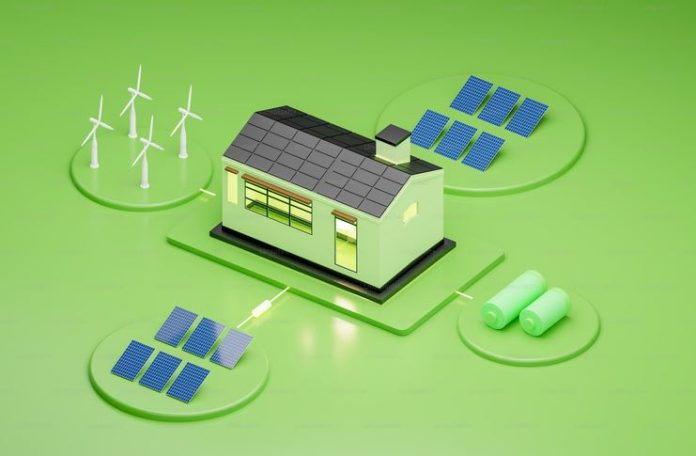
As the franchise industry continues to evolve, success depends on more than just great branding and operational systems. Behind every thriving location is a network of smart decisions, and energy management is quickly becoming one of the most important. From operational efficiency to long-term sustainability, how a franchise manages its energy use can directly impact its bottom line. In this post, as part of our franchising blog, we’ll delve into the importance of energy companies to the franchise industry—and why their role is more crucial than ever.
Franchising remains one of the most dynamic ways to expand a business. From bustling food kiosks in urban centers to service-focused operations catering to local communities, franchises form the backbone of modern entrepreneurship. Yet as these enterprises expand, so do their energy needs—and that’s where commercial energy companies play an indispensable role. Whether you’re a seasoned franchisor or an aspiring entrepreneur exploring your first franchise opportunity, understanding how energy partnerships factor into the bottom line can significantly influence profitability, growth, and environmental impact.
Energy may not be the first thing you think about when launching a franchise, but in a competitive world where margins can be razor-thin, it’s more important than you might imagine. Below, we’ll explore how commercial energy providers help franchises manage costs, streamline operations, and foster an eco-friendly brand image that resonates with today’s conscious consumers. If you’ve never considered how electricity suppliers affect your franchise potential, now’s the time to delve into this overlooked aspect of the business.
Watch this video to learn how energy costs tops the list of small businesses:
The Franchise Landscape and Its Dependence on Reliable Energy
In fast-paced marketplaces like Manila, where foot traffic can turn a small kiosk into a bustling success story, reliable power is as critical as a steady flow of customers. Food chains need uninterrupted electricity to keep refrigeration units running, while retail franchises rely on modern lighting, computerized inventory systems, and payment processing terminals to serve customers efficiently. Without a stable power source, the entire operation—no matter how strong the brand name, risks coming to a grinding halt.
Rising Electricity Demands
- Technological Integration: Most franchises now rely heavily on digital systems for everything from sales tracking to customer loyalty programs. This reliance naturally increases energy usage.
- Extended Operating Hours: Many franchise models—fast-food restaurants, convenience stores, gyms—stay open late or even operate 24/7, demanding consistent and high-quality power.
- Regulatory Compliance: Commercial settings are bound by safety protocols and health regulations, necessitating well-maintained electrical systems to guarantee public safety.
When you partner with a reputable commercial energy company, you ensure that your brand’s operational needs are met with minimal disruptions. Instead of juggling electricity contracts and utility negotiations, franchisees can focus on delivering the best experience possible to their customers.
Cost Management: A Make-or-Break Factor for Franchisees
Keeping a franchise afloat requires a constant balancing act. You’re juggling franchise fees, monthly royalties, staffing costs, rent or lease payments, and of course, utility expenses. Even a minor spike in energy costs can eat into your margins, making cost control a pivotal concern—especially for those operating in highly competitive markets.
Securing Competitive Rates
- Bulk Contracts: By aggregating multiple franchise locations under a single energy agreement, you can often secure discounted rates that wouldn’t be accessible if each site negotiated independently.
- Long-Term Contracts vs. Flexibility: Some franchises may prefer a stable, long-term energy rate to predict costs, while others might opt for more flexible arrangements that take advantage of dips in electricity pricing.
- Energy Audits and Assessments: Many commercial energy providers offer audits to identify inefficiencies, like outdated wiring or appliances, and recommend targeted improvements.
An energy-savvy franchise network can save significantly on monthly bills, freeing up funds for promotions, staff training, or even expansions. Over time, these cost savings can accumulate, giving your franchise a competitive edge in pricing, profitability, and overall brand strength.
Eco-Friendly Branding and Corporate Social Responsibility
Beyond financial considerations, franchisors are increasingly aware of how brand image intersects with sustainability. Going green is no longer an optional corporate strategy; it’s becoming a core expectation from customers, investors, and community stakeholders. Commercial energy companies can be powerful partners in shaping a more eco-conscious franchise model.
Green Energy Initiatives
- Renewable Energy Contracts: Some commercial energy providers can source part or all of a franchise’s energy from solar, wind, or other renewable sources, reducing carbon footprints.
- Efficient Systems: Energy partners may recommend technology like LED lighting, energy-efficient refrigeration, and advanced HVAC units that considerably cut energy usage.
- Certifications and Recognition: By opting for sustainable energy solutions, franchise locations may qualify for local, national, or global certifications that enhance the brand’s public standing.
In a world where consumers gravitate toward businesses that reflect their values, showcasing renewable energy usage can significantly bolster a franchise’s reputation. Coupled with effective marketing, these initiatives can attract eco-conscious diners, shoppers, or clients—driving loyalty in a crowded marketplace.
Scalability and Franchisor Peace of Mind
One of the defining elements of a franchise business is the potential for rapid expansion. A model that works in one location can be replicated across multiple branches, regions, or even countries. However, each new outlet introduces higher energy demands and new operational complexities.
Streamlining Multi-Location Energy Management
- Centralized Contracts: Commercial energy companies often simplify the process by centralizing energy agreements across all franchise sites, ensuring uniform pricing and service levels.
- Real-Time Monitoring: Advanced systems can offer real-time data on energy consumption for each branch, helping franchisors spot anomalies or gauge which locations might benefit from efficiency upgrades.
- Future-Proofing Growth: Locked-in rates or easily scalable contracts allow franchisors to plan for expansion without the unpredictability of fluctuating energy costs.
Thanks to these streamlined processes, franchisors can maintain consistent standards across every location, guaranteeing uniform service quality and operational continuity—even when the franchise footprint spans across different provinces or countries.
Watch this video for some energy consumption tips for small businesses:
Key Considerations When Choosing a Commercial Energy Partner
Of course, not all energy companies are created equal. Choosing the right partner can be the difference between slashing utility bills and struggling with hidden fees or lackluster customer support. Below are some criteria to consider when evaluating potential energy providers:
1. Contract Terms and Transparency
- Clear Fee Structures: Avoid ambiguous contracts loaded with hidden costs. The provider should lay out all charges, including usage-based fees, peak-hour rates, and any ancillary costs.
- Flexible Options: Franchises vary widely in their energy requirements. A one-size-fits-all approach rarely works, so look for a provider that tailors contracts to your usage patterns.
- Opt-Out Clauses: Sometime, business needs change. Understanding contract termination clauses can save you from penalties if you decide to switch providers or close a branch.
2. Customer Support and Reliability
- 24/7 Assistance: If a crucial power system fails at midnight, you’ll want immediate help. Reputable energy partners offer round-the-clock support to minimize operational disruptions.
- Reputation in the Market: Research testimonials or reviews to see how well a provider has met the needs of other franchises in your sector.
- Proactive Maintenance: Providers that actively inspect and upgrade infrastructure reduce the risk of blackouts or unexpected issues.
3. Sustainability Credentials
- Renewable Energy Sources: If green initiatives are a part of your franchise philosophy, ensure the energy company offers relevant renewable options.
- Energy Audits and Upgrades: Ask whether they can support regular check-ups to maintain optimal efficiency.
- Certification Assistance: Some energy companies will guide you through the process of applying for sustainability awards or certifications, adding value to your brand.
Practical Strategies for Franchisees to Lower Energy Consumption
While a strong partnership with a commercial energy supplier is crucial, there are also steps franchisees can personally undertake to enhance efficiency. Small but strategic measures can lead to substantial overall savings.
Embrace Modern Technology
- Smart Thermostats and Sensors: Automate heating, ventilation, and air conditioning (HVAC) based on occupancy and time of day.
- Efficient Appliances: Replace old equipment with ENERGY STAR-rated alternatives that run more effectively on less power.
- Remote Monitoring: Some franchises install cameras and IoT devices to monitor equipment operation and detect early signs of malfunction.
Encourage Staff Involvement
- Awareness Training: Employees are on the frontline of your daily operations. Simple reminders like switching off lights in unoccupied areas or powering down idle machines make a difference.
- Incentive Programs: Recognize teams or individuals who consistently practice energy efficiency, turning savings into a fun, collaborative effort.
- Regular Reviews: Hold periodic check-ins to reassess and update best practices as new technology emerges or operational patterns shift.
Conduct Regular Energy Audits
- Professional Assessments: Even if your energy partner provides audits, it pays to seek independent reviews periodically for a fresh perspective.
- Benchmarking Across Locations: For multi-branch franchises, compare usage data to highlight outliers. If one outlet’s usage is abnormally high, investigate why.
- Implementation of Findings: Audits are only as good as the follow-up actions. Once inefficiencies are found, prioritize them in your budget and operational planning.
Community Impact and Franchise Growth
Supporting local economies is often a part of the franchise mission—one that extends well beyond mere commerce. By aligning with energy companies that emphasize sustainability and fair pricing, franchises contribute to the long-term prosperity of the neighborhoods they serve.
- Local Employment: Lower energy costs can enable expansions, potentially creating more jobs and investing in better infrastructure.
- Community Relations: An eco-friendly reputation bolsters goodwill. Franchises that reduce their carbon footprint become cornerstones of responsible local development.
- Resilience to Disruptions: Reliable energy supplies help businesses weather economic fluctuations or natural events, ensuring continued service to customers.
Securing Your Franchise’s Future Through Energy Excellence
If there’s one lesson to glean from the shifting global economy, it’s that adaptability and efficiency are paramount. Although franchising offers a proven pathway to brand-building and expansion, thriving in a crowded market requires more than just a popular product or a well-known brand name. It hinges on smart decisions at every level—including your choice of energy provider.
By forging partnerships with energy companies, franchises gain access to advanced technology, tailored contracts, renewable energy options, and expert guidance on reducing waste. Over time, these benefits accrue, strengthening the franchise’s financial foundation while enhancing its community presence and environmental stewardship. Best of all, the momentum you build through energy savings can be reinvested—funding new branches, boosting employee incentives, or powering charitable initiatives that uplift the community.
In an era where consumer loyalty is shaped by brand ethics and social responsibility, going the extra mile to ensure sustainable practices can set your franchise apart. It’s not just about what you sell; it’s about how you operate. When you join forces with a top-tier energy partner, you’re sending a clear message to customers and investors alike: We’re committed to running a responsible, forward-thinking enterprise—one that values both profitability and the planet.
A graduate of Marketing Management who tried his luck with Sales and soon found himself writing for a living. He began as an Academic Writer before turning into online content and getting serious with his own blog. He daydreams of embarking on an exploration of what the world has to offer while finding inspiration to put his thoughts into writing. He currently contributes for WhenInManila.com. You can check his own blog at themusescamecrashing.wordpress.com.




